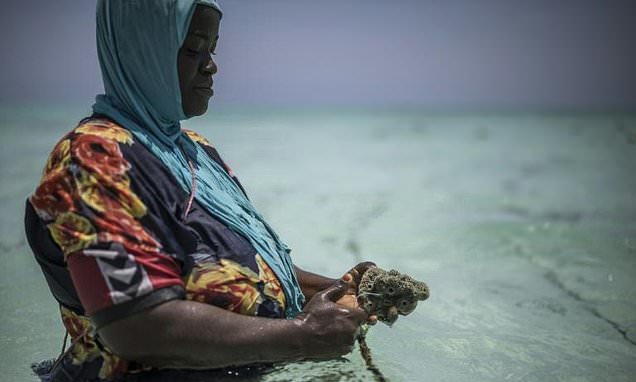Home / Environment / Zanzibar Sponge Farms Revive Coastal Communities After Climate Change Upheaval
Zanzibar Sponge Farms Revive Coastal Communities After Climate Change Upheaval
13 Nov
Summary
- Sponge farming offers new income source for Zanzibar locals after seaweed farming declined
- Sponges thrive in warmer waters, unlike seaweed affected by climate change
- Sponge cultivation project empowers women, with some earning up to $30 per sponge

As of November 2025, a sponge cultivation cooperative in Zanzibar has emerged as a lifeline for local communities, offering a new and sustainable source of income after climate change and environmental degradation devastated the island's seaweed farming industry.
Around 10 a.m. each day, women in Jambiani village wade through the turquoise waters to tend to their sponge farms, a practice introduced by a Swiss NGO over a decade ago. Rising ocean temperatures, overfishing, and pollution had steadily degraded the marine ecosystems, undermining seaweed farming, a key source of income for many locals.
However, sponges have thrived in the warmer waters, providing both economic and environmental benefits. Depending on size, a single sponge can fetch up to $30, and a single farm can have as many as 1,500 sponges. This has allowed women like Shemsa Abbasi Suleiman to build their own homes and improve their livelihoods.
Beyond the economic impact, the sponge farms are also helping to restore Zanzibar's marine ecosystems. Studies show that sponges aid in carbon recycling and water filtration within coral reef systems, which have been under threat globally. As one participant, Nasiri Hassan Haji, noted, "What attracted me to this is the fact that we are not destroying the environment."
With demand for eco-friendly products on the rise, the sponge market has grown steadily, providing a new lifeline for Zanzibar's coastal communities as they adapt to the changing climate.




